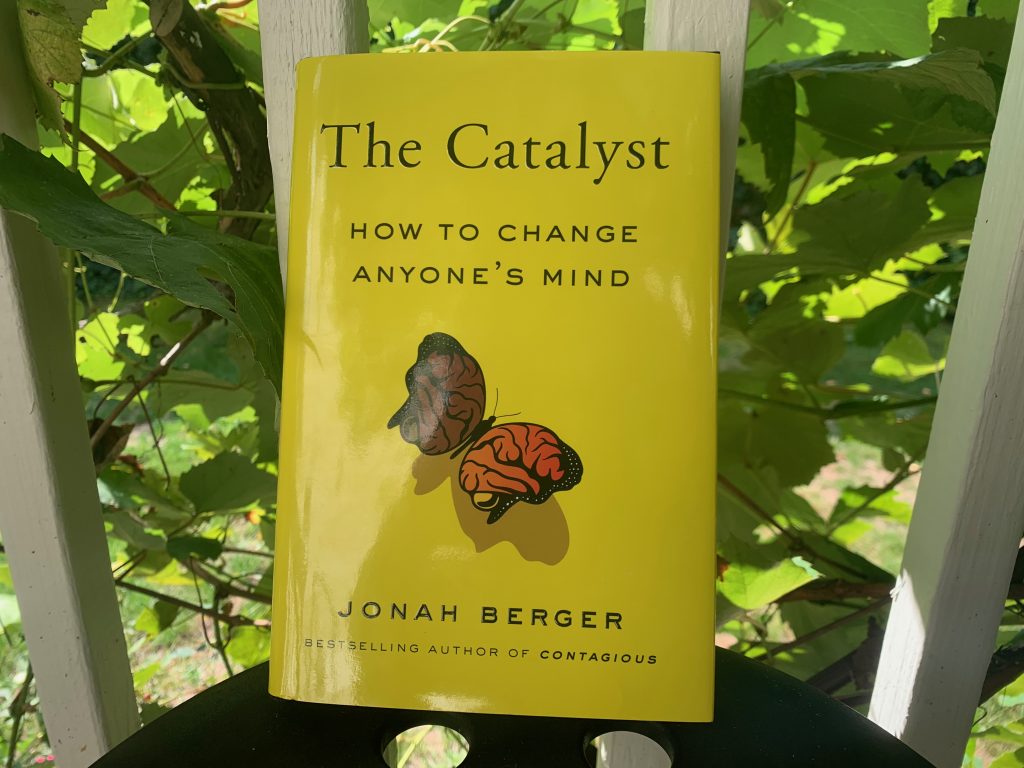Capacity Building
Updated Advocacy Toolbox: How to make a difference, where to start, and how to get there
Healthcare policymaking in CT can be complex and frustrating. But you’re not alone and there is help. With generous support from the Connecticut Health Foundation, we’ve updated our Health Advocacy Toolbox. The comprehensive site covers legislative, administrative, and state budget advocacy, how to change public opinion, finding and working in coalitions, effective communications, and how…
Read MoreBook Club — The Catalyst: How to Change Anyone’s Mind
By Jonah Berger There are lots of books on persuasion. Most don’t add much to the last one. But The Catalyst is worth the time. Well-written — a high-value read. The author builds on newer science to break down how to change minds. Pushing and lecturing rarely work. First, figure out what people think now,…
Read MoreFact Check: Are primary care doctors underpaid?
Download the Fact Check A statement was made in a recent Connecticut state public meeting that primary care physicians are paid less than specialists. The statement was made a recent Technical Team meeting for the Office of Health Strategy’s cost cap project considering a substantial increase in spending on primary care. The facts, however, are…
Read MoreImprove health policymaking — Nominate a claim for fact checking
In Connecticut state policymaking committee meetings, advocates routinely hear questionable claims stated as facts. Often very important caveats and context are left out. As non-members, we have no opportunity to question the claim or correct the misinformation. Too often policy is made based on these un-challenged claims. For twenty years, the CT Health Policy Project…
Read MoreCTNJ: For a better post-COVID policy process, CT needs to abolish all committees
I couldn’t agree more with my advocacy friends who called on the legislature to open public hearings to online participation. But legislative hearings are only part of the problem. Connecticut policymakers need to abolish all taskforces, boards, workgroups, design groups, consortia, advisory and steering committees, teams, councils, and similar committees. These insular groups, run with…
Read MoreCTNJ: COVID Response Offers Opportunities for Connecticut’s Future Healthcare System
The pandemic has been tragic in both lives lost and economic damage, especially to low wage workers. Our already flawed healthcare system has been seriously disrupted. Insurer profits are up, hospitals are losing money, and Connecticut healthcare jobs in April were down 28,400 from the year before. As the pandemic winds down, the recovery offers…
Read MoreOpportunity to inform CT community public health priorities
The State Health Improvement Coalition is seeking community members from Northeast, Southeast, and Southwest Connecticut for input on prioritizing the most pressing public health needs for our state. Every five years, DPH creates a new plan to improve the health of our state in a model of inclusive, data-driven policymaking. The latest version will be…
Read MoreBook Club: Everything you need to know to understand, and fact check, data claims
The pandemic has placed us all in a crash course on health claims, science and data – what we know and what we don’t know. It can be confusing and scary. The Art of Statistics: How to Learn from Data by David Spiegelhalter is here to help. The book describes how statistics and probability can…
Read MoreShare your ideas to support Connecticut health care coordination, access, and quality
The state is rushing to implement an expensive Health Information Exchange to access $48 million before a federal deadline. The state Office of Health Strategy (OHS) is moving forward very quickly despite concerns raised by consumers and providers about selling access to identifiable patient records to insurers and ACOs, privacy rights, the capacity of the…
Read MoreWalletHub – CT third worst state for doctors
According to WalletHub’s latest rankings, Connecticut ranks 49th among states and DC for physician practice. Nationally, physician is the highest paying job but new doctors leave medical school with $194,000 in student debt on average. As we all may be relying on physicians and other healthcare providers during this crisis, remember that March 30th is…
Read More








